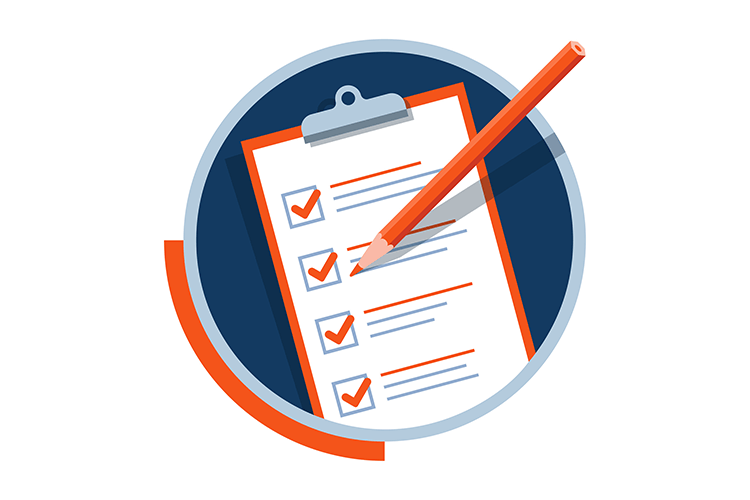We’re well into the new year, and there’s a good chance you’ve been reading a bit about what changes we expect in the Digital Marketing landscape during 2024. We’ll focus on our overall 2024 Digital Marketing trend predictions in an upcoming post, but for now, we want to delve into a topic that should be front of mind for all bulk email senders – the forthcoming changes in email guidelines and recommendations, particularly from Gmail.
These developments are set to impact how we send and receive emails significantly, and it’s important to take action to ensure uninterrupted email delivery. In this blog post, we will jump into the nitty gritty of Gmail’s changes and provide you with the guidance needed to work through this crucial transition.
Gmail’s New Email Guidelines:
Gmail, one of the most popular email services worldwide, has recently implemented stringent new guidelines to combat spam, increase security, and improve authentication. These changes will affect bulk email senders, including businesses, marketers, and organisations that rely heavily on email communications.
The changes have been enforced from 1 February 2024, and stricter enforcement will begin in April 2024. This should not be pushed to the bottom of your to-do list. Bulk email senders must take immediate action to ensure these changes are understood and guidelines are followed. Doing so will safeguard a healthy sender reputation and avoid potential disruptions.
Spam Protection and Authentication:
Gmail’s new guidelines focus on spam protection and email authentication, ensuring that emails sent to its users’ accounts are legitimate and desired. By implementing these measures, Gmail aims to provide its users with a safer and more streamlined email experience. Bulk Email senders must be aware of the following key points:
- Sender Authentication: Gmail wants bulk email senders to do it right regarding sender authentication. They’re asking senders to use industry standards such as SPF (Sender Policy Framework), DKIM (DomainKeys Identified Mail), and DMARC(Domain-based Message Authentication, Reporting, and Conformance) to authenticate emails. These authentication methods verify the sender’s identity, reducing the likelihood of spoofing and phishing attacks.
- Bulk Sending Requirements: Gmail has set specific guidelines to follow when sending out high-volume emails. These include getting DNS records properly configured, optimising email infrastructure, and sticking to the best practices for email marketing.
- Feedback Loops: Gmail wants senders to actively monitor and act upon recipient feedback, including spam complaints and unsubscribe requests. A positive sender reputation can be maintained by promptly addressing these issues, and email deliverability can be improved.
What are the risks of non-compliance?
Failing to comply with these requirements can pose several risks:
- Decreased deliverability: Non-compliant emails run the risk of being flagged as spam or may be filtered out altogether. These include not only marketing emails, but also service and legal emails, which could contain important information about online orders, password resets, shipping updates, and account creation.
- Negative impact on sender reputation: Sending bulk emails that do not meet Gmail’s guidelines can negatively affect the sender’s reputation. This can lead to emails being blocked or marked as spam by Gmail and other email service providers, resulting in fewer emails reaching the recipients’ inboxes.
- Damage to brand reputation: Recipients receiving unwanted or irrelevant emails may perceive the sender’s brand negatively and report emails as spam. This can harm the brand image and credibility.
- Legal consequences: Non-compliance with email recommendations may put senders at risk of legal matters. Sending unsolicited emails can violate spam laws in some jurisdictions, resulting in penalties and legal actions.
- Blocked domains: Gmail could perceive non-compliant domains as spam senders, leading to them being blacklisted across the entire Gmail platform. This may impact your entire email marketing strategy, not just your Gmail inbox.
- Limited send rates: Non-compliant bulk email senders could even find themselves restricted in terms of how many emails can be sent to Gmail addresses per day.
It’s also important to note that from February 2024, Gmail won’t provide mitigation for email delivery issues to senders that don’t meet the guidelines.
Feeling overwhelmed? We’ve got you covered!
The email landscape is constantly evolving, and although these changes may feel like a curveball, we’ve got a solution to help you tackle this challenge. Our Email Sender Health Check is designed to optimise your email practices, ensuring you’re on the right side of these requirements. So, don’t hesitate to reach out to us below.
References:
- Google Support – Bulk Email Sender Guidelines
- Google Support – Prevent Emails From Being Marked as Spam
- New Rules for Bulk Email Senders from Google & Yahoo – MarTech
- Gmail Security, Authentication, and Spam Protection – Google Blog
- The World is Not Ready for Google & Yahoo’s Bulk Sending Requirements – Redsift Blog
- Gmail & Yahoo New Requirements: Are You Prepared? – Email on Acid Blog
- Google Sending Requirements – Folderly Blog


